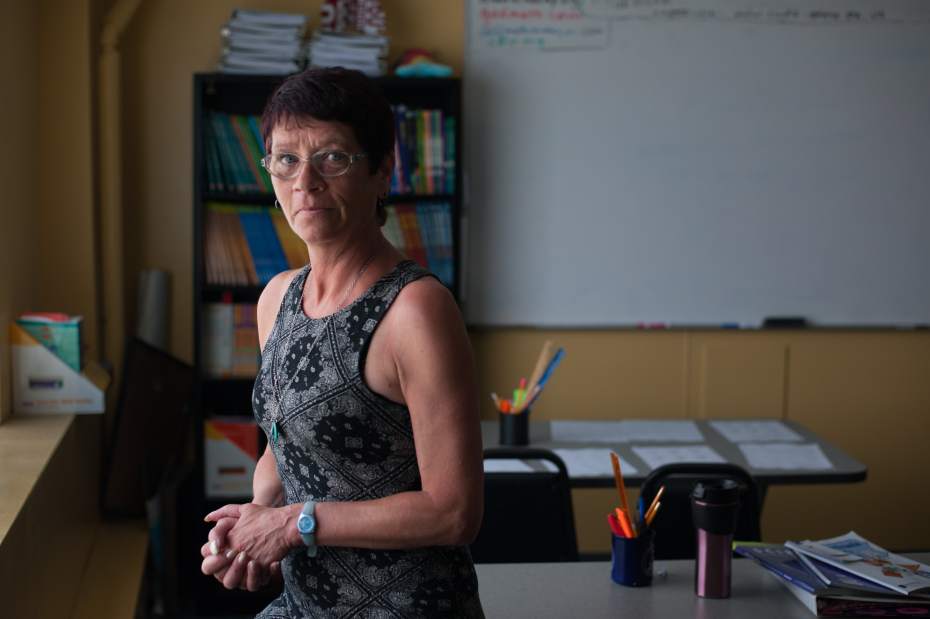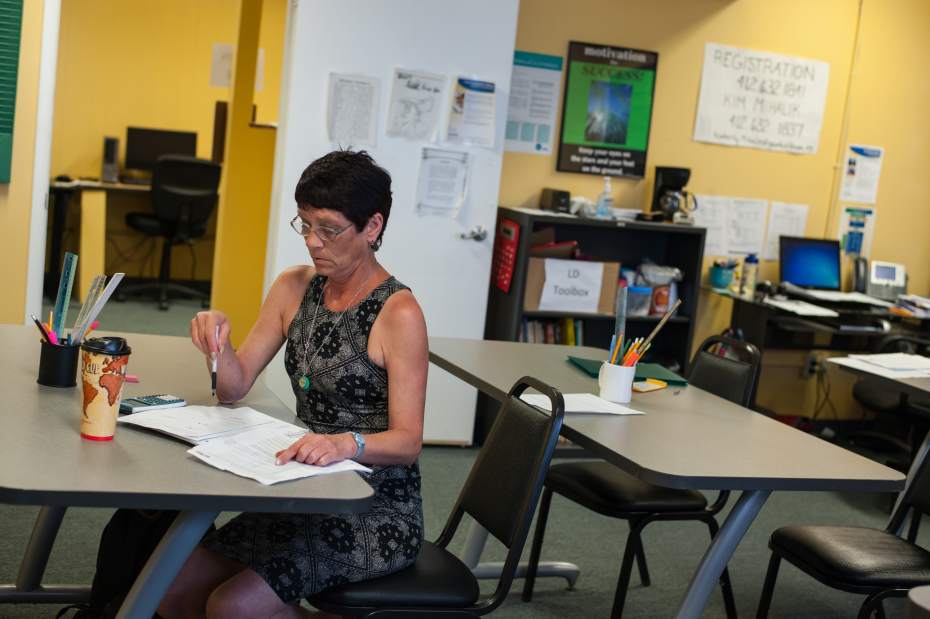Chronic job-seekers giving up the hunt
Bonita Guesman hasn't had a job in five months. And, for the moment, she's given up looking for one.
“My unemployment runs out at the end of September, beginning of October,” Guesman said one recent afternoon at a Starbucks on the South Side. “I looked for a couple of jobs but, in the process of looking, every corporation wants you to have proof of a high school diploma. I didn't have that proof.”
The 59-year-old Beechview resident never graduated high school, dropping out her junior year to support her family. She has worked her entire life, mostly as a paralegal and tax assistant at law firms and banks. But when she was laid off in March after 8 years at Bank of New York Mellon, Guesman confronted a job market that was very different from the one she first entered in 1973.
Frustrated at having her online job applications rejected before they ever reached a real person, Guesman stopped looking while she went back to school for her GED.
She is among millions of able-bodied Americans who have disappeared from the labor market, raising questions about what is driving them to end a job search and whether they will return as the economy recovers from the recession. It is why many federal policy makers and economists are hedged in their enthusiasm about the health of the economy, despite the most robust job growth since the tech boom.
“It should be very concerning,” said Susan Houseman, senior economist at the W.E. Upjohn Institute for Employment Research.
Economists disagree
The proportion of adults who are working or looking for work — called the labor force participation rate — is the lowest since October 1977. But the decline is not because the jobs aren't there. The economy has added nearly 3 million jobs during the past year.
Falling labor force participation is part of a 15-year-long slide being driven by younger generations staying in school for longer and aging baby boomers reaching retirement. But those demographic changes don't tell the whole story, said Bruce Fallick, an economist at the Federal Reserve Bank of Cleveland who has studied the decline in labor force participation.
There are people in their 40s and 50s who, like Guesman, remain on the sidelines in the jobs recovery.
Exactly why is unclear.
“The question of what they're doing is a difficult one,” Fallick said. “I don't think we know as much about that one.”
Economists have speculated that declines in manufacturing jobs explain part of the problem. The loss of those well-paying positions — exacerbated during the recession — has resulted in middle-class workers with skills that are no longer in demand. The longer they are unemployed, the more frustrating it can become for these once financially stable professionals, sometimes feeding a vicious cycle of other problems that will keep them out of work.
“Maybe they develop alcohol problems, maybe they have mental health issues, which is understandable if you're long-term unemployed,” Houseman said. “That could become a justification for going on disability insurance.”
Social factors?
There is significant debate about whether increased use of social supports, such as disability insurance, are encouraging more people to not look for work. Stanford economist Mark Duggan testified before Congress in February that rising claims among workers aged 25-64 were keeping more people from participating in the job market. But the left-leaning Economic Policy Institute rejects that explanation, arguing that expanded enrollment is largely the result of population growth and aging baby boomers, not individuals “gaming the system.”
Disability insurance benefits for an estimated 11 million people could be cut next year if Congress does not replenish the program's trust fund, which is running out of money. If that happens, it may force more people back into the workforce, Houseman said.
“If you're starving, you'll go back to work, and you'll find something,” she said, adding that she was not advocating to reduce social programs.
Frustrating process
But sometimes, a job search itself can be the biggest roadblock.
Guesman and other older workers say they are frustrated with the online application process commonly used by companies to filter thousands of resumes. Guesman used to be able to meet with employers in person and persuade them to hire her based on experience. Now, she feels as though her resume never makes it into the hands of an actual person.
“I have a nice looking resume, but I don't think they bothered looking at it,” she said.
Highly educated workers are also vexed. Jackie Newman was a biology professor at University of Pittsburgh for 12 years before she was laid off last August.
Newman doesn't want another position in academia and is looking to become a project manager in the private sector. She had six months' notice before her job was eliminated and began a furious search that included biotech companies where she figured her biology background might be an advantage. She has been unable to get an interview.
Convinced that her resume wasn't getting through to anyone, Newman stopped applying.
“I have tried to avoid the online stuff because I know that they're never going to look at me,” said Newman, 45, of Cranberry. “I don't fit into tidy little boxes.”
Survival job
Newman instead focused on networking with professionals who might steer her to opportunities. In the meantime, she has taken a “survival” job, making $10.67 an hour at Office Max.
Patrick Ferraro said many people share Newman's struggles.
“It's just depressing as hell, looking at the same jobs you've applied for and not getting any response,” said Ferraro, who helps unemployed people find jobs as an employer relations consultant at the Career Development Center in Pittsburgh.
For the mid-career professional, being overqualified and having high salary requirements can be a barrier to being considered, he said. The repeated rejections can force them to give up altogether.
And those people calling it quits are driving down the labor force participation rate even further.
“People don't realize how big of a number it is,” he said. “People not being counted (in the workforce) anymore because they're saying, ‘I'm done.' ”
Some remain optimistic about finding work. Kurt Meixner is attempting a career change from banking into welding. He cashed out his retirement savings last year when he left PNC Bank and is completing a program at Community College of Allegheny County.
He has essentially been out of the job market for the past year. But he's hopeful about his prospects as he looks ahead to his August graduation. One of his younger classmates just got a job making $20 per hour. Meixner figures his management experience — he was an assistant vice president at PNC — will make him attractive to employers.
“I'm really optimistic,” he said. “I'm going to have a unique set of skills.”
Guesman is upbeat. She's going to continue her education in the fall at CCAC, where she plans to study graphic design.
She said she may look for part-time work when classes start. But once she graduates, Guesman may never apply for another job again.
“I'm going to work for myself,” she said. “I want to be my own boss for a change.”
Chris Fleisher is a staff writer for Trib Total Media.



